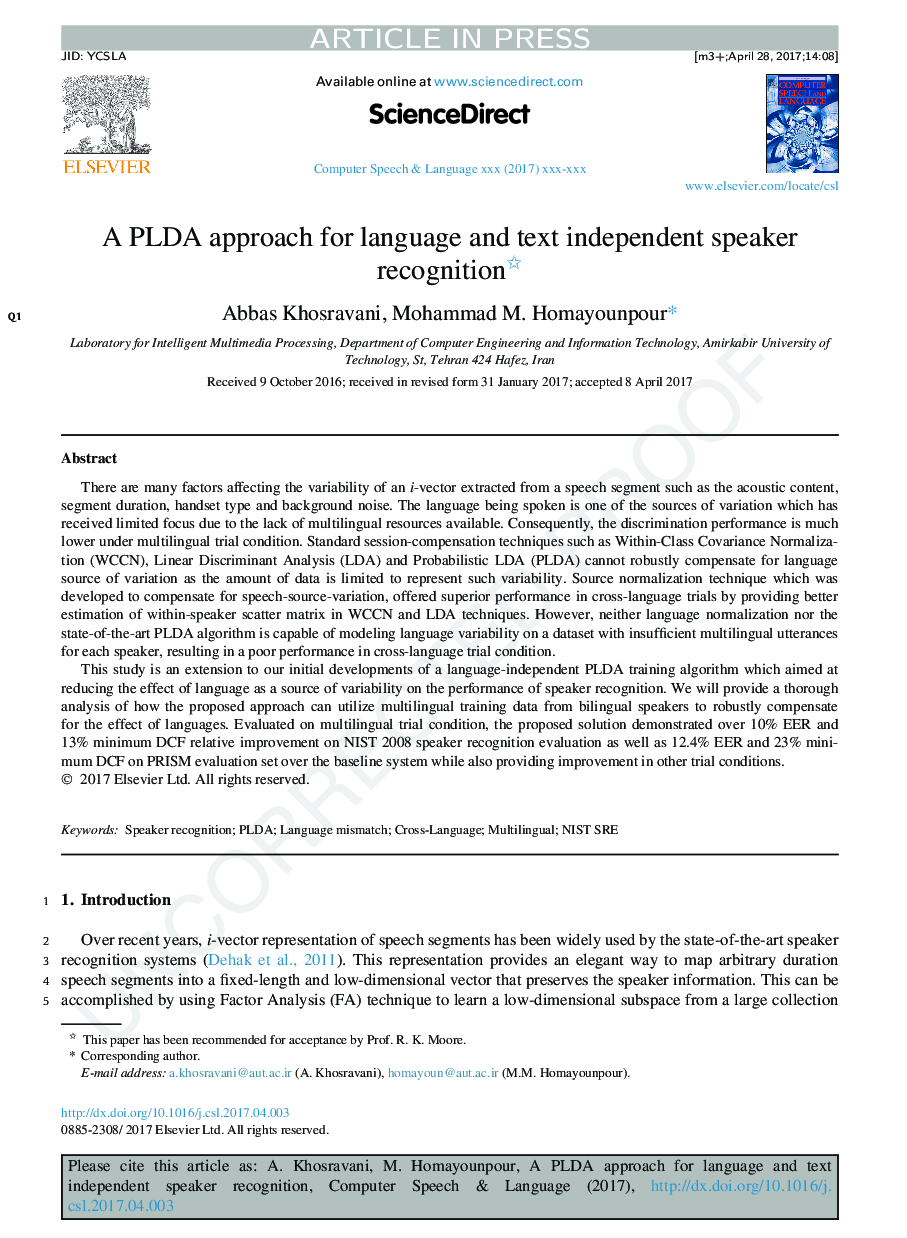| Article ID | Journal | Published Year | Pages | File Type |
|---|---|---|---|---|
| 4973685 | Computer Speech & Language | 2017 | 18 Pages |
Abstract
This study is an extension to our initial developments of a language-independent PLDA training algorithm which aimed at reducing the effect of language as a source of variability on the performance of speaker recognition. We will provide a thorough analysis of how the proposed approach can utilize multilingual training data from bilingual speakers to robustly compensate for the effect of languages. Evaluated on multilingual trial condition, the proposed solution demonstrated over 10% EER and 13% minimum DCF relative improvement on NIST 2008 speaker recognition evaluation as well as 12.4% EER and 23% minimum DCF on PRISM evaluation set over the baseline system while also providing improvement in other trial conditions.
Related Topics
Physical Sciences and Engineering
Computer Science
Signal Processing
Authors
Abbas Khosravani, Mohammad M. Homayounpour,
